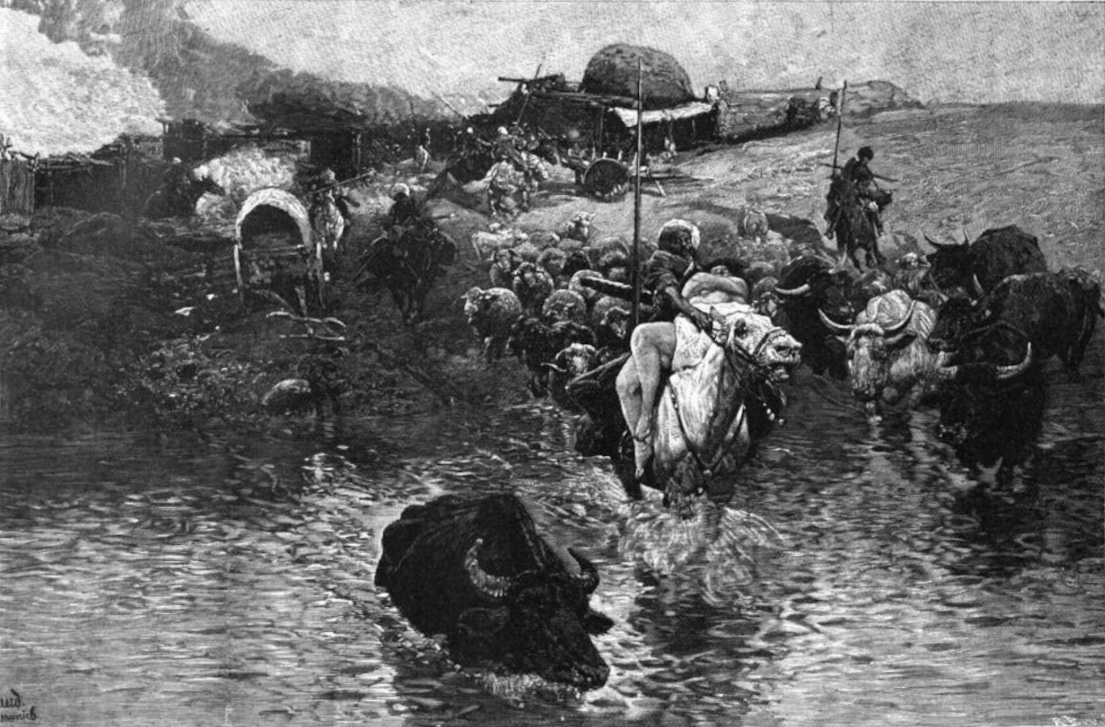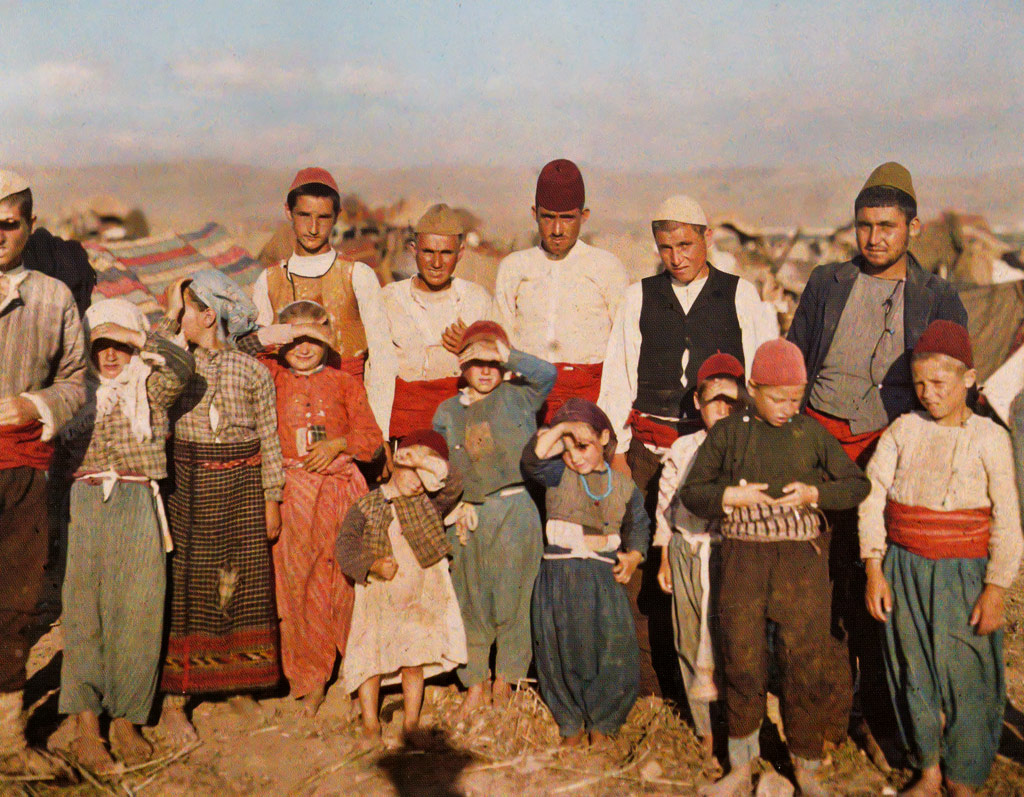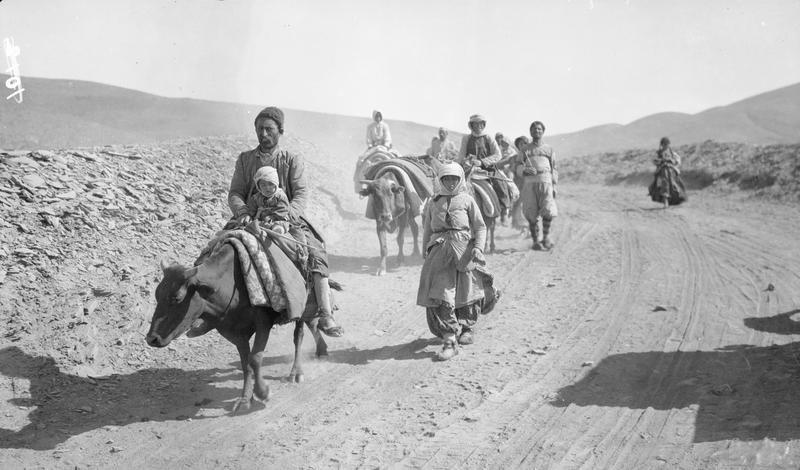|
Tatiana Committee
The Committee of Her Imperial Highness the Grand Duchess Tatiana Nikolaevna for the Temporary Relief of Victims of War (), commonly known simply as the Tatiana Committee (), was a war-refugee relief organization during World War I in the Russian Empire. Organized in September 1914 and named after Grand Duchess Tatiana Nikolaevna, daughter of Emperor Nicholas II of Russia, the committee provided aid (food, clothing, shelter, etc.) to refugees and others affected by the war, organized schools and hospitals, provided grants to other charitable organizations. It was the central refugee relief organizations in Russia until the establishment of the Special Council of Refugees () on 30 August 1915. The Tatiana Committee was reorganized after the February Revolution in 1917 – it dropped Tatiana's name, announced elections to key posts, allowed refugees to represent themselves. The reorganized committee was known as the All-Russian Committee to Assist Victims of War (). Deprived of its se ... [...More Info...] [...Related Items...] OR: [Wikipedia] [Google] [Baidu] |
War Refugee
A refugee, according to the United Nations High Commissioner for Refugees (UNHCR), is a person "forced to flee their own country and seek safety in another country. They are unable to return to their own country because of feared persecution as a result of who they are, what they believe in or say, or because of armed conflict, violence or serious public disorder." Such a person may be called an asylum seeker until granted refugee status by a contracting state or by the UNHCR if they formally make a claim for asylum. Internally Displaced People (IDPs) are often called refugees, but they are distinguished from refugees because they have not crossed an international border, although their reasons for leaving their home may be the same as those of refugees. Etymology and usage In English, the term ''refugee'' derives from the root word ''refuge'', from Old French ''refuge'', meaning "hiding place". It refers to "shelter or protection from danger or distress", from Latin ''fuger ... [...More Info...] [...Related Items...] OR: [Wikipedia] [Google] [Baidu] |
Armenian Genocide
The Armenian genocide was the systematic destruction of the Armenians, Armenian people and identity in the Ottoman Empire during World War I. Spearheaded by the ruling Committee of Union and Progress (CUP), it was implemented primarily through the mass murder of around one million Armenians during death marches to the Syrian Desert and the Forced conversion, forced Islamization of others, primarily women and children. Before World War I, Armenians occupied a somewhat protected, but subordinate, place in Ottoman society. Large-scale massacres of Armenians had occurred Hamidian massacres, in the 1890s and Adana massacre, 1909. The Ottoman Empire suffered a series of military defeats and territorial losses—especially during the 1912–1913 Balkan Wars—leading to fear among CUP leaders that the Armenians would seek independence. During their invasion of Caucasus campaign, Russian and Persian campaign (World War I), Persian territory in 1914, Special Organization (Ottoman ... [...More Info...] [...Related Items...] OR: [Wikipedia] [Google] [Baidu] |
Organizations Established In 1914
An organization or organisation (Commonwealth English; see spelling differences) is an entity—such as a company, or corporation or an institution (formal organization), or an association—comprising one or more people and having a particular purpose. Organizations may also operate secretly or illegally in the case of secret societies, criminal organizations, and resistance movements. And in some cases may have obstacles from other organizations (e.g.: MLK's organization). What makes an organization recognized by the government is either filling out incorporation or recognition in the form of either societal pressure (e.g.: Advocacy group), causing concerns (e.g.: Resistance movement) or being considered the spokesperson of a group of people subject to negotiation (e.g.: the Polisario Front being recognized as the sole representative of the Sahrawi people and forming a partially recognized state.) Compare the concept of social groups, which may include non-organiza ... [...More Info...] [...Related Items...] OR: [Wikipedia] [Google] [Baidu] |
1914 Establishments In The Russian Empire
This year saw the beginning of what became known as the First World War, after Archduke Franz Ferdinand of Austria, heir to the Austrian throne was Assassination of Archduke Franz Ferdinand, assassinated by Serbian nationalist Gavrilo Princip. It also saw the first airline to provide scheduled regular commercial passenger services with heavier-than-air aircraft, with the St. Petersburg–Tampa Airboat Line. Events January * January 1 – The St. Petersburg–Tampa Airboat Line in the United States starts services between St. Petersburg, Florida, St. Petersburg and Tampa, Florida, becoming the first airline to provide scheduled regular commercial passenger services with heavier-than-air aircraft, with Tony Jannus (the first federally-licensed pilot) conveying passengers in a Benoist XIV flying boat. Abram C. Pheil, mayor of St. Petersburg, is the first airline passenger, and over 3,000 people witness the first departure. * January 11 **The Sakurajima volcano in Japan ... [...More Info...] [...Related Items...] OR: [Wikipedia] [Google] [Baidu] |
Organizations Based In The Russian Empire
An organization or organisation (Commonwealth English; see spelling differences) is an entity—such as a company, or corporation or an institution (formal organization), or an association—comprising one or more people and having a particular purpose. Organizations may also operate secretly or illegally in the case of secret societies, criminal organizations, and resistance movements. And in some cases may have obstacles from other organizations (e.g.: MLK's organization). What makes an organization recognized by the government is either filling out incorporation or recognition in the form of either societal pressure (e.g.: Advocacy group), causing concerns (e.g.: Resistance movement) or being considered the spokesperson of a group of people subject to negotiation (e.g.: the Polisario Front being recognized as the sole representative of the Sahrawi people and forming a partially recognized state.) Compare the concept of social groups, which may include non-organiza ... [...More Info...] [...Related Items...] OR: [Wikipedia] [Google] [Baidu] |
Russian Empire In World War I
Russian(s) may refer to: *Russians (), an ethnic group of the East Slavic peoples, primarily living in Russia and neighboring countries *A citizen of Russia *Russian language, the most widely spoken of the Slavic languages *''The Russians'', a book by Hedrick Smith *Russian (comics), fictional Marvel Comics supervillain from ''The Punisher'' series *Russian (solitaire), a card game * "Russians" (song), from the album ''The Dream of the Blue Turtles'' by Sting *"Russian", from the album ''Tubular Bells 2003'' by Mike Oldfield *"Russian", from the album '' '' by Caravan Palace *Nik Russian, the perpetrator of a con committed in 2002 See also * *Russia (other) *Rus (other) *Rossiysky (other) *Russian River (other) *Rushen (other) Rushen may refer to: Places * Rushen, formally Kirk Christ Rushen, a historic parish of the Isle of Man ** Rushen (constituency), a House of Keys constituency of which the parish forms part ** Rushen (sheading ... [...More Info...] [...Related Items...] OR: [Wikipedia] [Google] [Baidu] |
Refugee Aid Organizations
A refugee, according to the United Nations High Commissioner for Refugees (UNHCR), is a person "forced to flee their own country and seek safety in another country. They are unable to return to their own country because of feared persecution as a result of who they are, what they believe in or say, or because of armed conflict, violence or serious public disorder." Such a person may be called an asylum seeker until granted #Refugee status, refugee status by a contracting state or by the UNHCR if they formally make a claim for right of asylum, asylum. Internally Displaced People (IDPs) are often called refugees, but they are distinguished from refugees because they have not crossed an international border, although their reasons for leaving their home may be the same as those of refugees. Etymology and usage In English, the term ''refugee'' derives from the root word ''refuge'', from Old French ''refuge'', meaning "hiding place". It refers to "shelter or protection from danger ... [...More Info...] [...Related Items...] OR: [Wikipedia] [Google] [Baidu] |
Zemstvo
A zemstvo (, , , ''zemstva'') was an institution of local government set up in consequence of the emancipation reform of 1861 of Imperial Russia by Emperor Alexander II of Russia. Nikolay Milyutin elaborated the idea of the zemstvo, and the first zemstvo laws went into effect in 1864. After the October Revolution of 1917 the zemstvo system was shut down by the Bolsheviks and replaced with a multilevel system of workers' and peasants' councils ("soviets"). History Zemstvos were created as part of the larger Great Reforms with the specific goal of creating organs of elected, local self-government. The existing system of local self-government in the Russian Empire was represented at the lowest level by the mir and at the regional level by the volost. These institutions continued during the zemstvo period; however, they were seen as insufficient, due to their lack of independent authority. In 1864, the first law on zemstvos was enacted by the Emperor, a law that outlined the p ... [...More Info...] [...Related Items...] OR: [Wikipedia] [Google] [Baidu] |
All-Russian Zemstvo Union
The All-Russian Zemstvo Union of Aid to Sick and Wounded Warriors, under the auspices of Her Imperial Highness Grand Duchess Elizabeth Feodorovna () was a civil society organisation set up in the Russian Empire to support sick and wounded soldiers. It was established in Moscow on 30 July 1914 at a congress of authorized provincial zemstvos. Georgy Lvov headed the organisation as Chief Commissioner. On August 11, 1914, the organisation was ratified with suitable Regulations of the committee by Her Imperial Highness Grand Duchess Elizabeth Feodorovna. The organisation was funded by government subsidies, appropriations of local organisations of zemstvos and cities, and donations from private individuals. It worked alongside the Military Sanitary Department and the Red Cross The organized International Red Cross and Red Crescent Movement is a Humanitarianism, humanitarian movement with approximately 16million volunteering, volunteers, members, and staff worldwide. It was founded ... [...More Info...] [...Related Items...] OR: [Wikipedia] [Google] [Baidu] |
Ottoman Empire
The Ottoman Empire (), also called the Turkish Empire, was an empire, imperial realm that controlled much of Southeast Europe, West Asia, and North Africa from the 14th to early 20th centuries; it also controlled parts of southeastern Central Europe, between the early 16th and early 18th centuries. The empire emerged from a Anatolian beyliks, ''beylik'', or principality, founded in northwestern Anatolia in by the Turkoman (ethnonym), Turkoman tribal leader Osman I. His successors Ottoman wars in Europe, conquered much of Anatolia and expanded into the Balkans by the mid-14th century, transforming their petty kingdom into a transcontinental empire. The Ottomans ended the Byzantine Empire with the Fall of Constantinople, conquest of Constantinople in 1453 by Mehmed II. With its capital at History of Istanbul#Ottoman Empire, Constantinople (modern-day Istanbul) and control over a significant portion of the Mediterranean Basin, the Ottoman Empire was at the centre of interacti ... [...More Info...] [...Related Items...] OR: [Wikipedia] [Google] [Baidu] |
Assyrian Genocide
The Sayfo (, ), also known as the Seyfo or the Assyrian genocide, was the mass murder and deportation of Assyrian/Syriac Christians in southeastern Anatolia and Persia's Azerbaijan province by Ottoman forces and some Kurdish tribes during World War I. The Assyrians were divided into mutually antagonistic churches, including the Syriac Orthodox Church, the Assyrian Church of the East, and the Chaldean Catholic Church. Before World War I, they largely lived in mountainous and remote areas of the Ottoman Empire and Persia, some of which were effectively stateless. The Ottoman Empire's nineteenth-century centralization efforts led to increased violence and danger for the Assyrians. Mass killing of Assyrian civilians began during the Ottoman occupation of Azerbaijan from January to May 1915, during which massacres were committed by Ottoman forces and pro-Ottoman Kurds. In Bitlis province, Ottoman troops returning from Persia joined local Kurdish tribes to massacre the loca ... [...More Info...] [...Related Items...] OR: [Wikipedia] [Google] [Baidu] |







